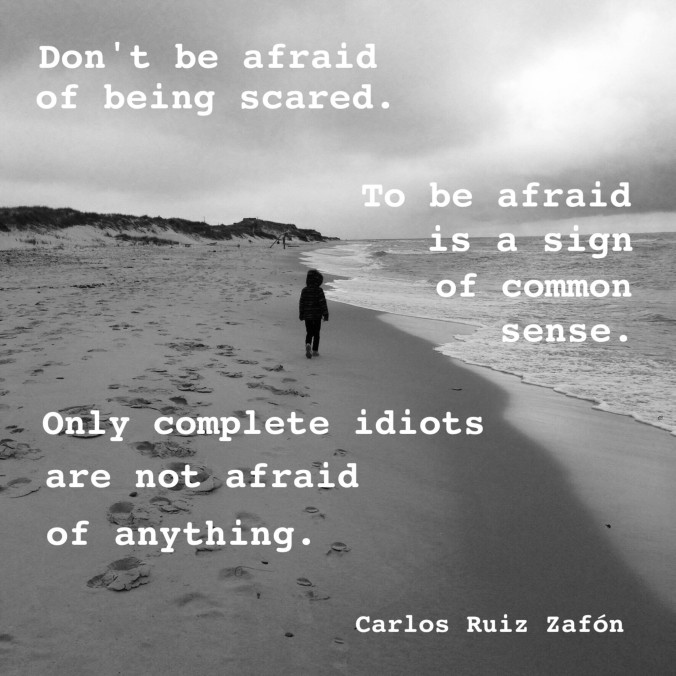I think we were both equally stunned. Me, by her reaction, and her, by what I’d just told her. My friend had just stopped in her tracks, in her kitchen, and staring at me, blinking.
“I can’t believe that you’re being so upfront about being scared, yet so serene about it!”, she said, when she finally found her voice. We were discussing the fact that I was envisioning a complete career change following being laid off after more than ten years in the same position.
I smiled and admitted that, up until two years ago, there’s simply no way I would have admitted to feeling unsure of myself. But here I was, being transparent about the fact that I was afraid, and yet still willing to go ahead with my life. Willing to take some risks without having figured everything out in advance like I had done most of my adult life. And my teenage years, come to think of it.
Being scared has a bad rap in our society. We see it as weakness. People rarely fess up to being afraid, and when they do, it’s routinely as an excuse for inaction.
But what if we looked at it differently? What if we took it as a motivation to go forward? After all, if apprehension leads us to paralysis, we are certainly cheating ourselves out of an experience.
THAT WHOLE VULNERABILITY THING
Admitting to being scared shows vulnerability, which can undoubtedly make people uneasy. Certainly, at first, experiencing vulnerability, as well as witnessing it, can bring us well outside of our comfort zone.
It’s only with practice that we begin to see that accepting our vulnerability—and expressing it—is how we can be the most authentic. And with even more practice, vulnerability becomes not only less uncomfortable, but very necessary, as it’s the way we can truly, powerfully, be who we truly are.
Similarly, having someone admit that they are afraid makes us reflect—whether we want it or not—on what scares *us*, and it’s not the type of mirror most of us like to look into. It just doesn’t feel good. We’d often rather keep our eyes closed.
However, I have a strong belief that if we looked at that apprehension as a sign, rather than just as a deterrent, we could actually uncover the opportunity to learn a lot about ourselves.
Acknowledging that we’re afraid isn’t the same thing as operating out of fear. In fact, I’d argue that it’s the opposite. By naming what scares us, we lessen the hold it has on us. Like J.K. Rowlings famously wrote: “Fear of a name increases the fear of the thing itself.”
AUTHENTICITY BEGETS AUTHENTICITY
This is one of my favourite things to say. I firmly believe that with every single authentic interaction, we create the potential for more. A cascade of authenticity, if you will.
When we speak up and own how we feel, we signal to others that they’re allowed to do the same, that they don’t have to pretend. That no one is going to get “found out”. Admitting that we are afraid kind of kicks that impostor syndrome in the teeth.
This authenticity allows us to shine as truly ourselves. And I don’t know about you, but I’d rather be fully myself and admit that I am scared, rather than presenting a more polished front and be cowering inside.
There’s power in taking action despite being afraid. I think it sends great signals in the universe. This way, when we *are* truly happy and confident, we’re also able to communicate it, enjoy it and embody it fully and radiantly!

